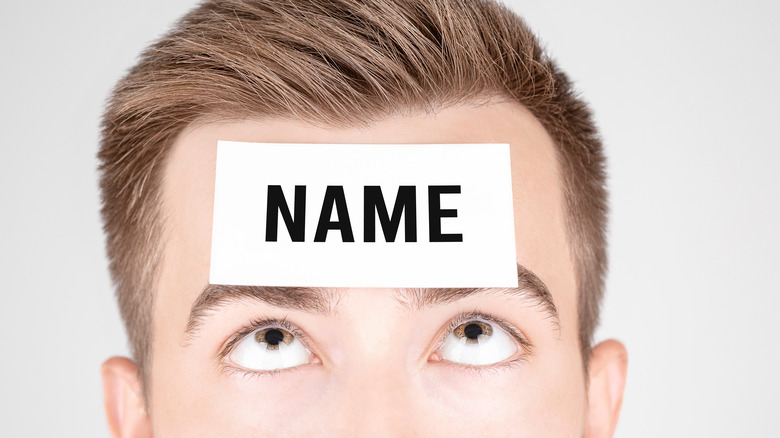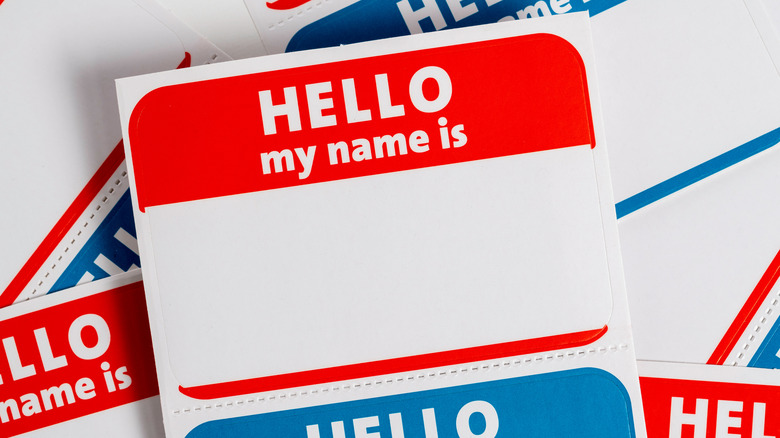The Real Reasons Your Ancestors May Have Changed Their Names
Remember at the end of "Titanic" when Rose changes her last name to Dawson after safely landing in America? Or in "The Godfather Part II" when Vito Andolini arrives at Ellis Island and his last name is changed to Corleone (the town in Italy from whence he fled)? Contrary to the cinematic proclamations about history, that really wasn't a common practice, as Smithsonian explains. However, there's a very good chance that your family's last name isn't the one they sported in the beginning. Hold off on the identity crisis, though. This pertains to a lot of people.
There is an abundance of reasons why names have changed throughout the years, from variations in social preference to simple mispronunciation (via ThoughtCo.) It's almost like a game of name-based telephone that's been going on for centuries. Much like the many species of beings that inhabit the planet, the names we go by today are also subject to a particular form of evolution.
Why names change
Illiteracy was one of the more fundamental reasons why names and their spelling fluctuated throughout the years. Many of our ancestors were inept at reading and writing, so names were recorded in the ways they were heard. Inevitably, the interpretations were often incorrect. Even if the inability to read/write wasn't too heavy, simple mispronunciations of names relayed through heavy accents rendered the spelling when scribes recorded them (per ThoughtCo.).
Sometimes, it was a matter of personal preference. After emancipation, former slaves would often change their surnames to something of their own choosing (per Facing History & Ourselves). When immigrants arrived in America, the urge to subvert discrimination prompted them to translate their names from the original language to English. For instance, the Irish surname "Brehony" was changed to "Judge." If it wasn't a matter of preference, it was necessity. If the new country which an immigrant wished to call home used a different alphabet than their homeland, the name had to change along with the territory, which was most common for Russian, Ukrainian, and Asian immigrants (via ThoughtCo.).
The list of reasons goes on. Personal preference, mandatory acclimation to a new home, changing times ... you "name" it.

